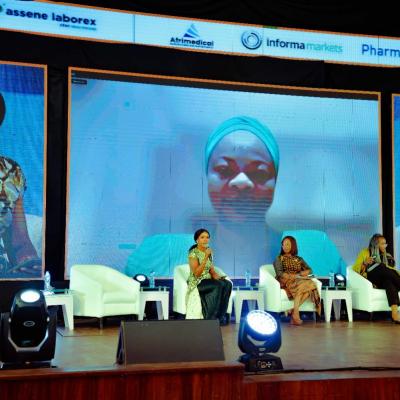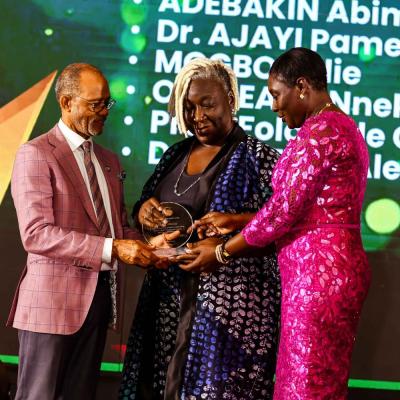Frontpage News (3257)
 The world's first malaria vaccine is promising but should be used on a pilot basis before any wide-scale use, given its limited efficacy, World Health Organization (WHO) experts said on Friday. The decision is likely to delay a possible broad roll-out of the shot for between three and five years. GlaxoSmithKline's Mosquirix could, in theory, help stop millions of cases of malaria in young children in Africa at risk of the deadly mosquito-borne disease. However, it is less effective than vaccines against many other diseases and there is uncertainty as to whether countries can effectively administer the four doses needed.
The world's first malaria vaccine is promising but should be used on a pilot basis before any wide-scale use, given its limited efficacy, World Health Organization (WHO) experts said on Friday. The decision is likely to delay a possible broad roll-out of the shot for between three and five years. GlaxoSmithKline's Mosquirix could, in theory, help stop millions of cases of malaria in young children in Africa at risk of the deadly mosquito-borne disease. However, it is less effective than vaccines against many other diseases and there is uncertainty as to whether countries can effectively administer the four doses needed.
Jon Abramson, chairman of the WHO Strategic Advisory Group of Experts, or SAGE, said experts recommended there should be three to five demonstration projects in children aged five to 17 months before considering wider use. These projects could involve up to 1 million children and would likely take three to five years to run, he added. SAGE did not recommend the use of Mosquirix, also known as RTS,S, in young babies. Committee experts said it was vital to give all four doses of the vaccine to ensure optimal efficacy, even though getting children back for multiple repeat shots could be challenging. "If we can't get four doses of this vaccine into the children, we're not going to be using it," Abramson told reporters.
 The National Drug Law Enforcement Agency (NDLEA), Plateau Command, said it seized 1,510 bottles of cough syrup and 824 kilogrammes of hard drugs in a recent raid on drug stores. Its Commander, Dr Ngozi Madubuike, made this known in an interview with the News Agency of Nigeria (NAN) in Jos on Sunday. She said the drug stores raided were in Jos-Bukuru metropolis, adding that the NDLEA officers also confiscated psychotropic substances. She explained that the syrup was seized because it contained codeine, noting that it was a controlled drug and was not meant to be sold over the counter. “We have been able to raid some drug stores and chemists in Jos-Bukuru metropolis who are not supposed to sell such drugs over the counter because the drugs are controlled drugs.
The National Drug Law Enforcement Agency (NDLEA), Plateau Command, said it seized 1,510 bottles of cough syrup and 824 kilogrammes of hard drugs in a recent raid on drug stores. Its Commander, Dr Ngozi Madubuike, made this known in an interview with the News Agency of Nigeria (NAN) in Jos on Sunday. She said the drug stores raided were in Jos-Bukuru metropolis, adding that the NDLEA officers also confiscated psychotropic substances. She explained that the syrup was seized because it contained codeine, noting that it was a controlled drug and was not meant to be sold over the counter. “We have been able to raid some drug stores and chemists in Jos-Bukuru metropolis who are not supposed to sell such drugs over the counter because the drugs are controlled drugs.
They are to be sold by qualified medical personnel, not just by any person because the drugs are controlled; the diversion of these drugs makes them accessible to those who abuse them. “From our findings, such persons take the drugs as stimulants because of the codeine in it which is a narcotic drug used medically for the production of some cough syrup.’’ She lamented that most youths who were into drugs buy the cough syrup not to treat cough “but to make them high and prepare them for nefarious activities.’’ Madubuike revealed that the command had earlier seized 824.517 kilogrammes of cannabis, cocaine and psychotropic substances.
 The Federal Government has said a total of $45, 506,787 million is being earmarked for measles immunization campaigns with a target population of 39,039,651 children across Nigeria. Speaking to journalists recently on a one-day media orientation workshop on 2015 Measles Follow Up Campaign for Health Programme Producers and Editors,, the Director, Disease Control and Immunisation, National Primary Health Care Development Agency (NPHCDA), Dr Damaris Onwuka, said the Global Alliance for Vaccine International (GAVI ) is providing $25 million of it, while state governments are providing some. She said the federal government has planned for measles campaign in two phases across the country, with phase one starting from November 21st-25th while phase 2 starts from January 28th to February 1st 2016.
The Federal Government has said a total of $45, 506,787 million is being earmarked for measles immunization campaigns with a target population of 39,039,651 children across Nigeria. Speaking to journalists recently on a one-day media orientation workshop on 2015 Measles Follow Up Campaign for Health Programme Producers and Editors,, the Director, Disease Control and Immunisation, National Primary Health Care Development Agency (NPHCDA), Dr Damaris Onwuka, said the Global Alliance for Vaccine International (GAVI ) is providing $25 million of it, while state governments are providing some. She said the federal government has planned for measles campaign in two phases across the country, with phase one starting from November 21st-25th while phase 2 starts from January 28th to February 1st 2016.
According to Onwuka, Phase 1 will target 19 northern states, including the Federal Capital Territory while Phase 2 will focus on 17 southern states. She disclosed that there was a measles outbreak sometime ago in one of the internally displaced camps in Adamawa. She, however, noted that the coming measles immunization campaign will not be house-to-house as service will be provided at fixed and temporary posts while care takers are expected to visit the nearest post. According to the director, the campaign will not also be integrated with oral polio vaccine.
 Recently, the National Agency for Food, Drug Administration and Control (NAFDAC) said it uncovered assorted counterfeit drugs worth over N40 million in Asaba, the Delta State capital. The agency said the drugs were found in the 3-bedroom apartment of 32 year-old man, Paul Eli. The counterfeit drugs include Maloxine, Lumatem (anti-malaria drugs), LOFNAC (for body pains relief), Buscomac (for stomach pain relief) and Rysovin (anti-fungal drug), alongside already printed mobile authentication numbers. Eli, a graduate of Management Science from the University of Nigeria, Nsukka, was arrested at his residence at 2, Charles Edozien Avenue, Asaba, where he is reportedly packaging the counterfeit drugs with mobile authentication number to make it appear genuine in the eyes of the unsuspecting patients.
Recently, the National Agency for Food, Drug Administration and Control (NAFDAC) said it uncovered assorted counterfeit drugs worth over N40 million in Asaba, the Delta State capital. The agency said the drugs were found in the 3-bedroom apartment of 32 year-old man, Paul Eli. The counterfeit drugs include Maloxine, Lumatem (anti-malaria drugs), LOFNAC (for body pains relief), Buscomac (for stomach pain relief) and Rysovin (anti-fungal drug), alongside already printed mobile authentication numbers. Eli, a graduate of Management Science from the University of Nigeria, Nsukka, was arrested at his residence at 2, Charles Edozien Avenue, Asaba, where he is reportedly packaging the counterfeit drugs with mobile authentication number to make it appear genuine in the eyes of the unsuspecting patients.
The suspect said he has been in the business for over one year, adding that he does the packaging of the drugs after receiving them from his business associate, whom he simply named as Chibuike in Lagos, but denied knowledge of the drugs being fake. Disclosing how the drugs are being distributed in Kano through his business partner, Chibuike in Sabon-Gari, the suspect who hails from Anambra State, said the drugs were being imported from India by his partner in Lagos. Few weeks ago, operatives of Task Force on Fake and Counterfeit Drugs of the Rivers State Ministry of Health, in conjunction with NAFDAC, raided and sealed up no fewer than 18 shops in the Orazi and Mgbuoba axis of Port Harcourt, the state capital.
 The World Health Organization (WHO) has revealed that Nigeria’s most patronized barbeque, Suya and Kilishi, can cause cancer. This came to light in WHO's anticipated report on the link between red meat and cancer. According to the report, which did not categorically mention Suya or Kilishi, stated that 50g of processed meat a day increases the chance of developing colorectal cancer by 18%. A BBC report on Monday, October 26, defined processed meat as meat that “has been modified to increase its shelf-life or alter its taste – such as by smoking, curing or adding salt or preservatives”. However, Suya is processed red meat, and when prepared, it is seasoned with salt, pepper and groundnut powder. Kilishi, on the other hand, is a drier version of suya.
The World Health Organization (WHO) has revealed that Nigeria’s most patronized barbeque, Suya and Kilishi, can cause cancer. This came to light in WHO's anticipated report on the link between red meat and cancer. According to the report, which did not categorically mention Suya or Kilishi, stated that 50g of processed meat a day increases the chance of developing colorectal cancer by 18%. A BBC report on Monday, October 26, defined processed meat as meat that “has been modified to increase its shelf-life or alter its taste – such as by smoking, curing or adding salt or preservatives”. However, Suya is processed red meat, and when prepared, it is seasoned with salt, pepper and groundnut powder. Kilishi, on the other hand, is a drier version of suya.
The WHO report also said high temperature cooking on a barbeque can create carcinogenic – cancerous chemicals. “For an individual, the risk of developing colorectal (bowel) cancer because of their consumption of processed meat remains small, but this risk increases with the amount of meat consumed,” Kurt Straif from the WHO said. According to estimation, 34,000 deaths from cancer every year could be down to diets high in processed meat. A professor from the Cancer Research UK and the University of Oxford, Tim Key, said; “This decision doesn’t mean you need to stop eating any red and processed meat, but if you eat lots of it you may want to think about cutting down.
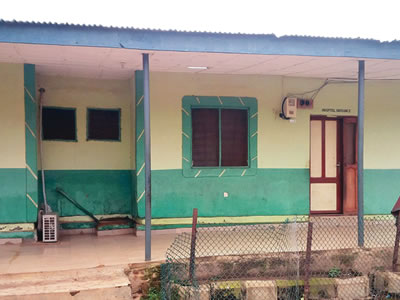 The Medical and Dental Council of Nigeria has raided a hospital in Ilorin, Kwara State, identified as Springsway Hospital. It learnt that many documents and a medical certificate believed to have been stolen from their owners were found during the raid on Saturday. The Head of Inspectorate, MDCN, Dr. Okwuokenye Henry, who was in Ilorin on the instruction of the council’s registrar, Dr. Abdulmumini Ibrahim, said the council got a report that a doctorate degree holder in Human Kinetics and Health Education, Dr. Olaitan Lanre, established and operated the facility in Oko Erin area of the state. He added that Lanre had allegedly been working as a doctor, carrying out surgery and fertility operations on patients in the clinic which operates 24 hours services.
The Medical and Dental Council of Nigeria has raided a hospital in Ilorin, Kwara State, identified as Springsway Hospital. It learnt that many documents and a medical certificate believed to have been stolen from their owners were found during the raid on Saturday. The Head of Inspectorate, MDCN, Dr. Okwuokenye Henry, who was in Ilorin on the instruction of the council’s registrar, Dr. Abdulmumini Ibrahim, said the council got a report that a doctorate degree holder in Human Kinetics and Health Education, Dr. Olaitan Lanre, established and operated the facility in Oko Erin area of the state. He added that Lanre had allegedly been working as a doctor, carrying out surgery and fertility operations on patients in the clinic which operates 24 hours services.
 The federal government says its recent facility-based study shows that the global stroke crisis kills 39 per cent of its survivors in Nigeria within three months while another 12 per cent develop severe disability afterward. This is coming as Nigeria marks this year’s World Stroke Day yesterday to underscore the serious nature and high rate of strokes, create awareness on prevention, treatment option, better care and support for survivors. The permanent secretary of the Federal Ministry of Health, Linus Awute said at the event in Abuja that over 15 million people suffer from stroke attack each year and about 6 million of them die from it globally, urging against lifestyle changes that trigger the condition.
The federal government says its recent facility-based study shows that the global stroke crisis kills 39 per cent of its survivors in Nigeria within three months while another 12 per cent develop severe disability afterward. This is coming as Nigeria marks this year’s World Stroke Day yesterday to underscore the serious nature and high rate of strokes, create awareness on prevention, treatment option, better care and support for survivors. The permanent secretary of the Federal Ministry of Health, Linus Awute said at the event in Abuja that over 15 million people suffer from stroke attack each year and about 6 million of them die from it globally, urging against lifestyle changes that trigger the condition.
He said: “Stroke is a common complication of hypertension, diabetes and sickle cell disease and this conditions share similar risk factors like unhealthy nutrition- fast foods, excess salt and sugar intake, with attendant overweight and obesity- lack of physical activity, excess alcohol intake and tobacco use.” According to Awute, the government is concerned about the increasing burden caused by stroke and other non-communicable diseases which has led to the flag off of the National Stroke Prevention Programme and the inauguration of the National Stroke Reference Group. The World Health Organisation (WHO) estimates that stroke is the second leading cause of death among people above 60 years and the fifth leading cause of death in people aged 15 to 59.
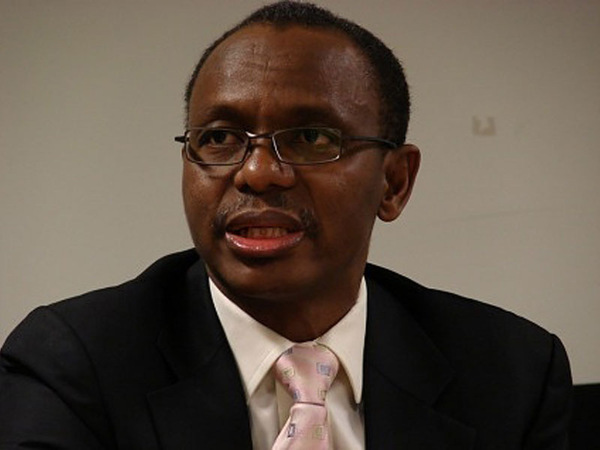 Kaduna State government unveiled its new primary healthcare law. Addressing the second Kaduna State Healthcare Partners’ Summit, Governor Nasir el-Rufai commended the state’s House of Assembly for the speedy passage of the law. According to the governor, the new law would permit the state to organise its primary healthcare activities under one roof, adding that implementation of the law would transfer workers in primary healthcare centres from local governments to the state’s civil service. El-Rufai said: “When we had the first summit on June 16, 2015, our young government was delighted by the turnout and your willingness to work with us. Health is one of the priority sectors for this government, and I must thank you for sharing our goal to deliver for Kaduna State citizens a better health and longer life expectancy.
Kaduna State government unveiled its new primary healthcare law. Addressing the second Kaduna State Healthcare Partners’ Summit, Governor Nasir el-Rufai commended the state’s House of Assembly for the speedy passage of the law. According to the governor, the new law would permit the state to organise its primary healthcare activities under one roof, adding that implementation of the law would transfer workers in primary healthcare centres from local governments to the state’s civil service. El-Rufai said: “When we had the first summit on June 16, 2015, our young government was delighted by the turnout and your willingness to work with us. Health is one of the priority sectors for this government, and I must thank you for sharing our goal to deliver for Kaduna State citizens a better health and longer life expectancy.
“During the first summit, we shared with you some of the dismal indices of our state in infant and maternal mortality, malaria treatment, measles vaccination and HIV/AIDS prevalence. We did that not for purposes of pointless lamentation, but to underline the scale of the challenge and our duty to deliver better healthcare outcomes to our people.” “One of our key goals is to place our state in the top tier for healthcare delivery. Participants responded positively to our request for coordination and collaboration among partners and donors to support our government’s healthcare programme.
Nigeria-made rapid urine test for malaria wins Health Innovation Awards
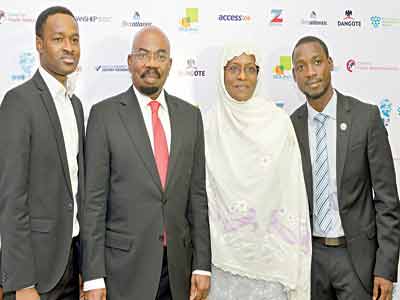 A Nigeria-made malaria test that can diagnose the disease within 25 minutes using just drops of patients’ urine sample has won the inaugural 2015 Health Innovation Challenge Awards. The awards was instituted by the Private Sector Health Alliance of Nigeria (PHN) through the Nigeria Health Innovation Marketplace (NHIM). Urine Malaria Test (UMT), which is endorsed by the Federal Ministry of Health (FMoH) and approved by the National Agency for Food Drugs Administration and Control (NAFDAC) and developed by Fyodor Biotechnologies was the first among the five winning innovations from the 2015 Health Innovation Challenge. The overall performance of the UMT is equivalent to that of the Binax NOW blood test, the only malaria rapid test approved by the United States Food and Drug Administration (FDA).
A Nigeria-made malaria test that can diagnose the disease within 25 minutes using just drops of patients’ urine sample has won the inaugural 2015 Health Innovation Challenge Awards. The awards was instituted by the Private Sector Health Alliance of Nigeria (PHN) through the Nigeria Health Innovation Marketplace (NHIM). Urine Malaria Test (UMT), which is endorsed by the Federal Ministry of Health (FMoH) and approved by the National Agency for Food Drugs Administration and Control (NAFDAC) and developed by Fyodor Biotechnologies was the first among the five winning innovations from the 2015 Health Innovation Challenge. The overall performance of the UMT is equivalent to that of the Binax NOW blood test, the only malaria rapid test approved by the United States Food and Drug Administration (FDA).
The award given to Fyodor UMT comes with a grant of $100,000 and enrollment in the accelerated programme of the NHIM. The presentation was made in Lagos, at the 2015 Nigeria Health Innovation and Impact Investment Summit. The Nigeria Health and Innovation Impact Investment Summit event was tagged “2015 Disrupting Healthcare, Saving Lives.” The activation of the PHN was formally endorsed by former President Goodluck Ebele Jonathan, Mr. Bill Gates, Alhaji Aliko Dangote, Dr. Muhammad Ali Pate, Mr. Jim Ovia, Mr. Aigboje Aig-Imoukhuede, Mrs. Sola David Borha and other corporate leaders in Nigeria to mobilise the broader business and corporate community as well as the private health sector towards a multi-sectoral coalition to improving health outcomes.
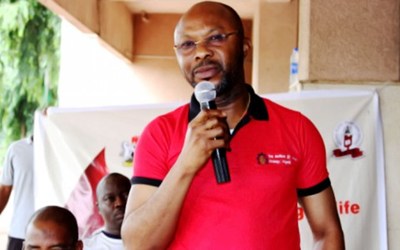 As part of government’s efforts towards a Universal Health Coverage (UHC) for all by 2020, the Federal Ministries of Health and Communication Technology, on Monday commenced the process of meeting the health needs of 90 million Nigerians, using a new national electronic-health framework. The digital framework, THISDAY learnt will be implemented in synergy with the United Nations Foundation (UNF), the Save-One-Million-Lives-Initiative (SOMLI), is part of a prepatory meeting towards an all-inclusive African Health Summit slated for 2016. Speaking at the technical meeting, in Abuja, the Permanent Secretary, of the Ministry of Communication Technology, Dr. Tunji Olaopa, who was represented by Tope Fadeshemi, a Director in the Ministry, said government through the National Information Technology Development Agency (NITDA), has developed an e-governance based master plan that would help in speeding up progress on the provision of e-health solutions for Nigerians.
As part of government’s efforts towards a Universal Health Coverage (UHC) for all by 2020, the Federal Ministries of Health and Communication Technology, on Monday commenced the process of meeting the health needs of 90 million Nigerians, using a new national electronic-health framework. The digital framework, THISDAY learnt will be implemented in synergy with the United Nations Foundation (UNF), the Save-One-Million-Lives-Initiative (SOMLI), is part of a prepatory meeting towards an all-inclusive African Health Summit slated for 2016. Speaking at the technical meeting, in Abuja, the Permanent Secretary, of the Ministry of Communication Technology, Dr. Tunji Olaopa, who was represented by Tope Fadeshemi, a Director in the Ministry, said government through the National Information Technology Development Agency (NITDA), has developed an e-governance based master plan that would help in speeding up progress on the provision of e-health solutions for Nigerians.
He said: "In developing the master plan, it was clear that we looked at all the sectors and health is an area that cannot be kept aside, and with this realization and also in fulfillment of the Millennium Development Goals (MDGs), the Ministry of health and ICT came together with the support of the United Nations Foundation (UNF) to form a framework toward providing healthy solutions for all Nigerians." According to Olaopa, the strategic partnership of all the stakeholders will help in the direction of having the UHC, in Nigeria in 2020, adding that one of the roles of ICT health is the development of national framework to guide and provide direction for the deployment and utilization of ICT in health care.
More...
WHO formally announces removal of Nigeria from polio-endemic list
Written by Super User Today, the World Health Organization (WHO) formally removes Nigeria from the list of polio-endemic countries. The announcement comes after the historic achievement of the country in interrupting the transmission of wild poliovirus for a period of 15 months, which exceeds WHO’s target for interruption. Only 2 countries (Afghanistan and Pakistan) remain polio-endemic, down from more than 125 in 1988. To recognize this landmark achievement, the WHO Regional Director for Africa, Dr Matshidiso Moeti, attended an official ceremony at the State House to formally announce to the Government of Nigeria, through President Muhammadu Buhari, WHO’s decision to remove Nigeria from the polio-endemic list.
Today, the World Health Organization (WHO) formally removes Nigeria from the list of polio-endemic countries. The announcement comes after the historic achievement of the country in interrupting the transmission of wild poliovirus for a period of 15 months, which exceeds WHO’s target for interruption. Only 2 countries (Afghanistan and Pakistan) remain polio-endemic, down from more than 125 in 1988. To recognize this landmark achievement, the WHO Regional Director for Africa, Dr Matshidiso Moeti, attended an official ceremony at the State House to formally announce to the Government of Nigeria, through President Muhammadu Buhari, WHO’s decision to remove Nigeria from the polio-endemic list.
“It is my pleasure to congratulate the people and the Government of Nigeria on the interruption of wild poliovirus transmission and to inform that Nigeria has been officially removed from the list of polio-endemic countries,” said Dr Moeti, who is representing the WHO Director-General Dr Margaret Chan. “The remarkable achievement is a true testament of what political will, government leadership, community ownership, and the collective efforts of partners can achieve when united behind a global public health good. To achieve polio eradication, we must ensure that in the next two years no child is paralyzed due to polio. There is no time for complacency and we must remainvigilant,” added Dr Moeti.
 Last week the World Health Organisation’s (WHO) cancer arm, the International Agency for Research on Cancer (IARC), announced that the consumption of processed and red meat is associated with an increased risk for colorectal cancer.Professor Vikash Sewram, the Director of the African Cancer Institute at Stellenbosch University’s Faculty of Medicine and Health Sciences, who also chairs the South African Ministerial Advisory Committee on the Prevention and Control of Cancer, answers some tough questions about this important announcement.
Last week the World Health Organisation’s (WHO) cancer arm, the International Agency for Research on Cancer (IARC), announced that the consumption of processed and red meat is associated with an increased risk for colorectal cancer.Professor Vikash Sewram, the Director of the African Cancer Institute at Stellenbosch University’s Faculty of Medicine and Health Sciences, who also chairs the South African Ministerial Advisory Committee on the Prevention and Control of Cancer, answers some tough questions about this important announcement.
Who Made The Evaluation: The assessment was part of the IARC’s Monographs Programme that has been involved since 1971 in evaluation of carcinogenic risks to humans – whether it be exposure to chemicals, complex mixtures, biological agents, occupational exposures or lifestyle factors. The evaluation of a risk factor takes place over a period of time and entails interdisciplinary working groups of expert scientists, selected from all over the world, reviewing published studies and evaluating the weight of the evidence that an agent can increase the risk of cancer. Once the evidence has been evaluated and a consensus reached, the agent is classified into one of five categories: Group 1: carcinogenic to humans; Group 2A: probably carcinogenic; Group 2B: possibly carcinogenic; Group 3: not classifiable as to its carcinogenicity; and Group 4: probably not carcinogenic to humans.
 A coalition of anti-corruption organisations, Civil Society Network Against Corruption, has called on President Muhammadu Buhari to commence a full-scale investigation into the alleged diversion of international fund in Federal Ministry of Health. Briefing journalists in Lagos, , the chairman of Civil Society Network Against Corruption, Mr. Olarenwaju Suraju, said the Global Alliance For Vaccines and Immunisation (GAVI) had, in 2013, conducted an audit on cash grants allocated to Nigeria between 2011 and 2013. Suraju said after the audit of its programme and support to the federal and state governments with National Primary Health Care Development Agency (NPHCDA) as principal recipient, it discoverered that a whopping $2.2 million was fraudulently diverted.
A coalition of anti-corruption organisations, Civil Society Network Against Corruption, has called on President Muhammadu Buhari to commence a full-scale investigation into the alleged diversion of international fund in Federal Ministry of Health. Briefing journalists in Lagos, , the chairman of Civil Society Network Against Corruption, Mr. Olarenwaju Suraju, said the Global Alliance For Vaccines and Immunisation (GAVI) had, in 2013, conducted an audit on cash grants allocated to Nigeria between 2011 and 2013. Suraju said after the audit of its programme and support to the federal and state governments with National Primary Health Care Development Agency (NPHCDA) as principal recipient, it discoverered that a whopping $2.2 million was fraudulently diverted.
He explained that despite the alleged mismanagement and diversion of the said fund, independent investigation conducted by the network in Borno, Adamawa, Gombe Bauchi among other Northern states was at variance with GAVI’s claims. According to the group, their investigation also showed that all contracts under the project were dully executed while provisions of the Nigerian financial regulations for the public service were duly Followed in the in the disbursement of duty. He said, “we found letters written by the New York office of UNICEF, a UN agency and an internationally reputed organisation, officially debunking claims in GAVI report as it concerns their transaction with NPHCDA under the contract.
Professional Rivalry, Clan Culture, Bane Of Nigeria’s Health Sector – PCN
 The Pharmacists Council of Nigeria (PCN) has said that professional rivalry and clan culture approach have remain the bane of the country’s health sector, saying that the development is endangering the life of patients. The Registrar of PCN, Pharm. Nurudeen Mohammed, stated this yesterday during the council executives’ courtesy visit to the LEADERSHIP corporate headquarters in Abuja. He said, “By the time we all agree that the patient is the reason we are gathered together, then our health indices will improve. The clan culture means ‘me and my household’. The medical doctor is trying to catch what will favour him, the pharmacists are doing this and the nurses are doing this and the whole system is in shambles.
The Pharmacists Council of Nigeria (PCN) has said that professional rivalry and clan culture approach have remain the bane of the country’s health sector, saying that the development is endangering the life of patients. The Registrar of PCN, Pharm. Nurudeen Mohammed, stated this yesterday during the council executives’ courtesy visit to the LEADERSHIP corporate headquarters in Abuja. He said, “By the time we all agree that the patient is the reason we are gathered together, then our health indices will improve. The clan culture means ‘me and my household’. The medical doctor is trying to catch what will favour him, the pharmacists are doing this and the nurses are doing this and the whole system is in shambles.
According to Mohammed, the solution to health sector crisis lies in unison, insisting that health workers must unite because of the patients and not because of what each clan will gain. He said that in a hospital setting, the doctor is meant to prescribe drugs while the pharmacists do the dispensing. “But definitely, this is not the case in Nigeria. When you go to the United Kingdom or the United States, everybody knows his job. In reality, professional ethics are been violated in both ways in Nigeria”, he added Commenting on the way forward, Mohammed said the solution lies on the two professionals sitting down to talk, saying that there must be a change to move the country forward and ensure the implementation or relevant enabling laws.



